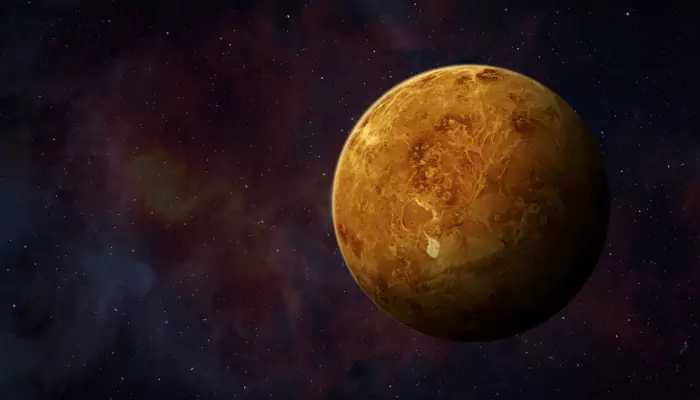Five Interesting Facts About Venus That You Should Know
Venus, the second planet of our solar system from the Sun, is odd in so many ways.
- Satavisha
- 13 August, 2024
- 2 mins ago

Five Interesting Facts About Venus That You Should Know
Venus, the second planet of our solar system from the Sun, is odd in so many ways.
Read on to find out some of the strangest things about this scorching hot planet that some people believe might support microbial life within its impenetrable clouds. Expand your knowledge of astronomy with these five startling facts about Venus.
A day on Venus is longer than a year on Earth.
Venus takes longer to complete one rotation on its axis than to complete one orbit of the Sun. The planet takes 243 Earth days to complete one rotation (the longest rotation duration of any planet in the Solar System). But the planet takes only 224.7 Earth days to complete one orbit of the Sun.

Venusian volcanoes
Venus has more volcanoes than any other planet in our solar system. Astronomers have discovered more than 1,600 volcanoes on the planet’s surface, but there are many more volcanoes that are yet to be discovered, owing to their small sizes. Researchers speculate most of these volcanoes are dormant, but a handful may still be active.
Venus is hotter than Mercury.
Venus’ mean temperature is 462°C, owing to the high concentration of carbon dioxide in its atmosphere, which works to create an intense greenhouse effect by trapping heat like a blanket within the atmosphere and causing the temperature to rise despite being farther than Mercury to the Sun.
Venus spins in a direction as opposed to the other planets.
If you could look down on the solar system from somewhere over the Sun’s north pole, you would notice the Sun rotating in a counterclockwise direction. All the planets except two (Venus and Uranus) would be rotating the same way. Venus rotates in a clockwise direction on its axis. It is still not known why the planet spins the other way. However, it is suspected that the very dense atmosphere of the planet and the action of solar tides may be responsible for it.
Venus’ atmosphere spins faster than the planet itself
While the planet slowly rotates on its axis every 243 days, Venus' upper atmosphere whips around the planet every four days. It is speculated that this "superrotation" is somehow influenced by thermal tides induced by the Sun, but researchers have not found a definitive cause yet.
Venus can easily be spotted with the naked eye from the Earth therefore it is impossible to say who was the first person to discover the planet.





